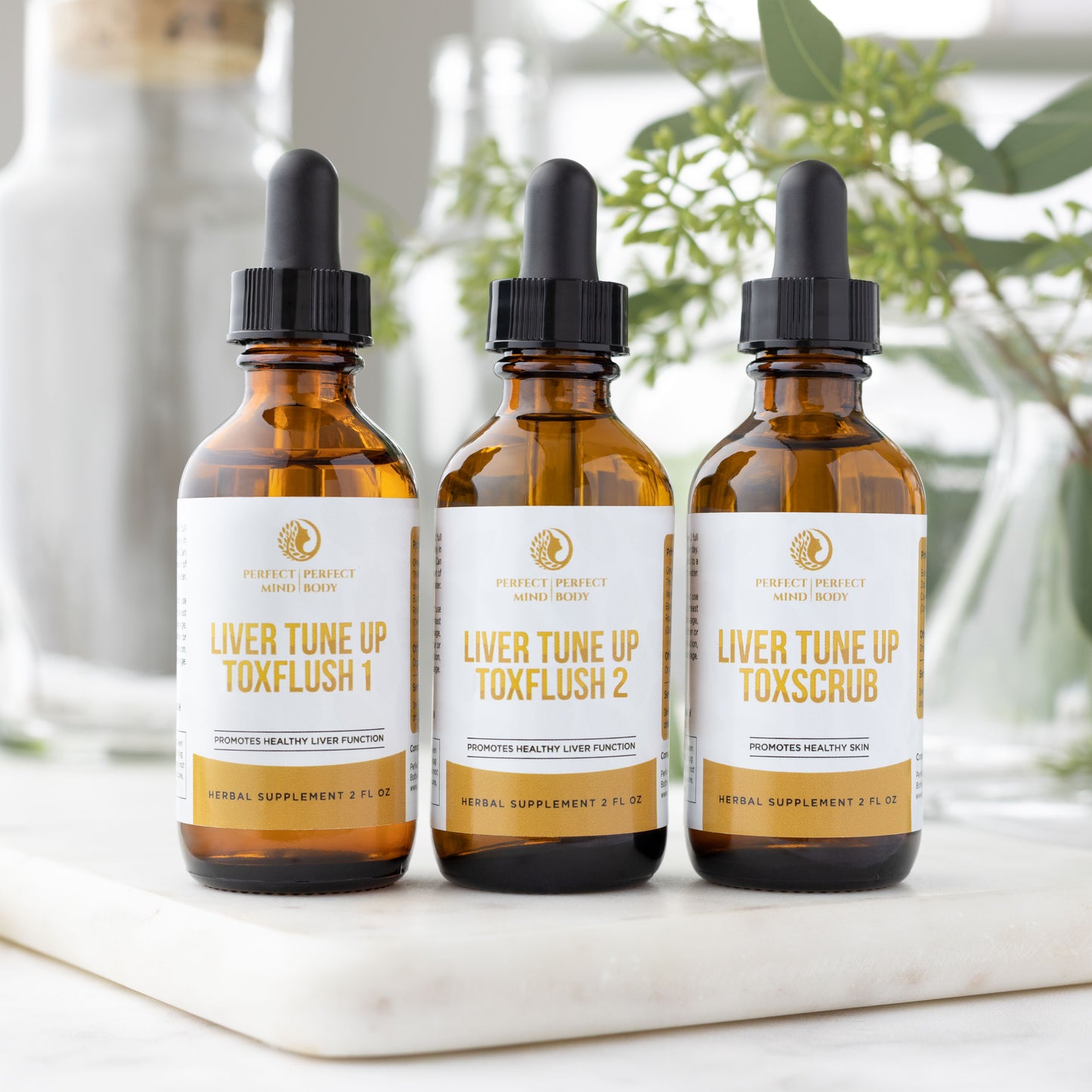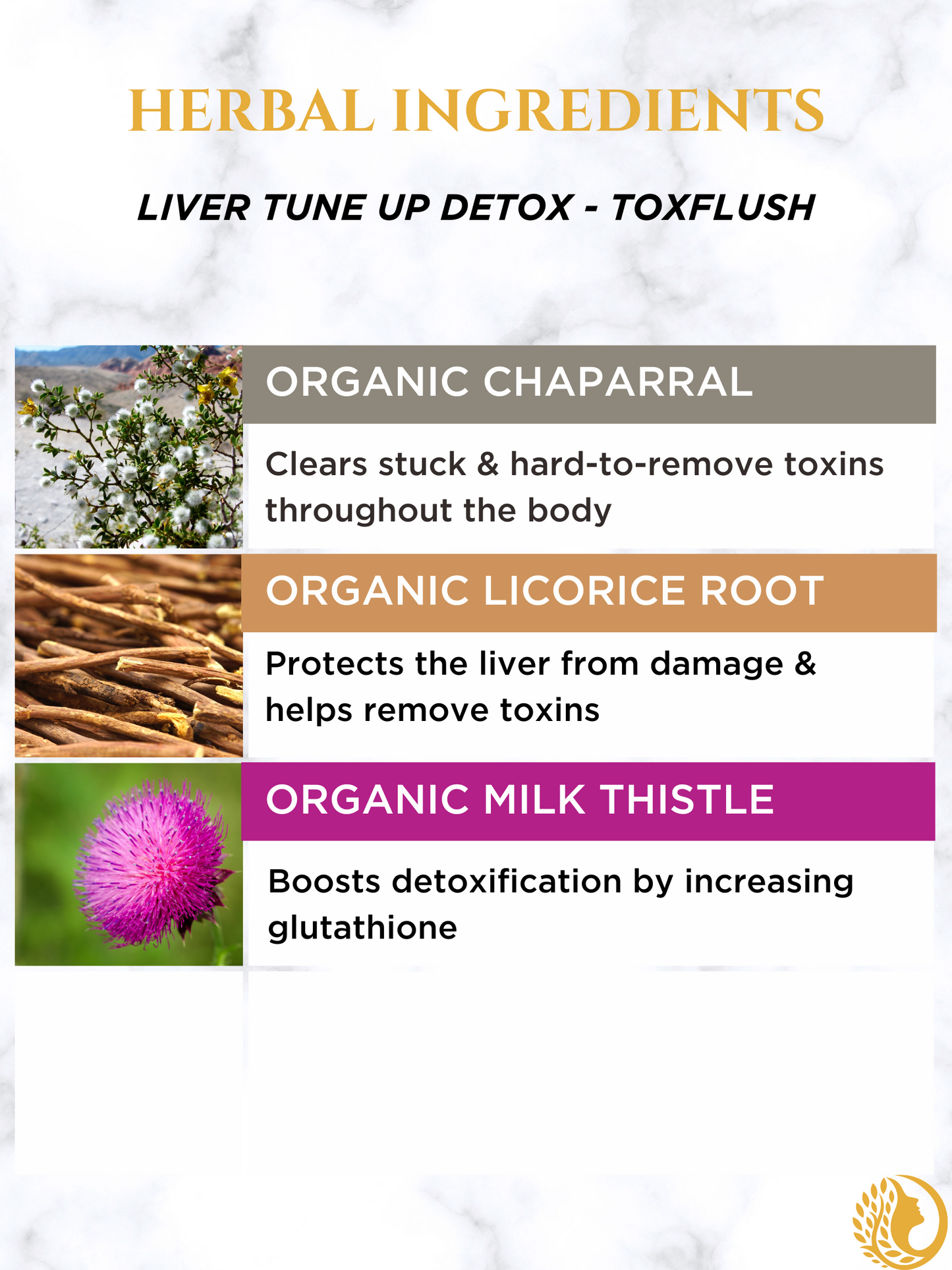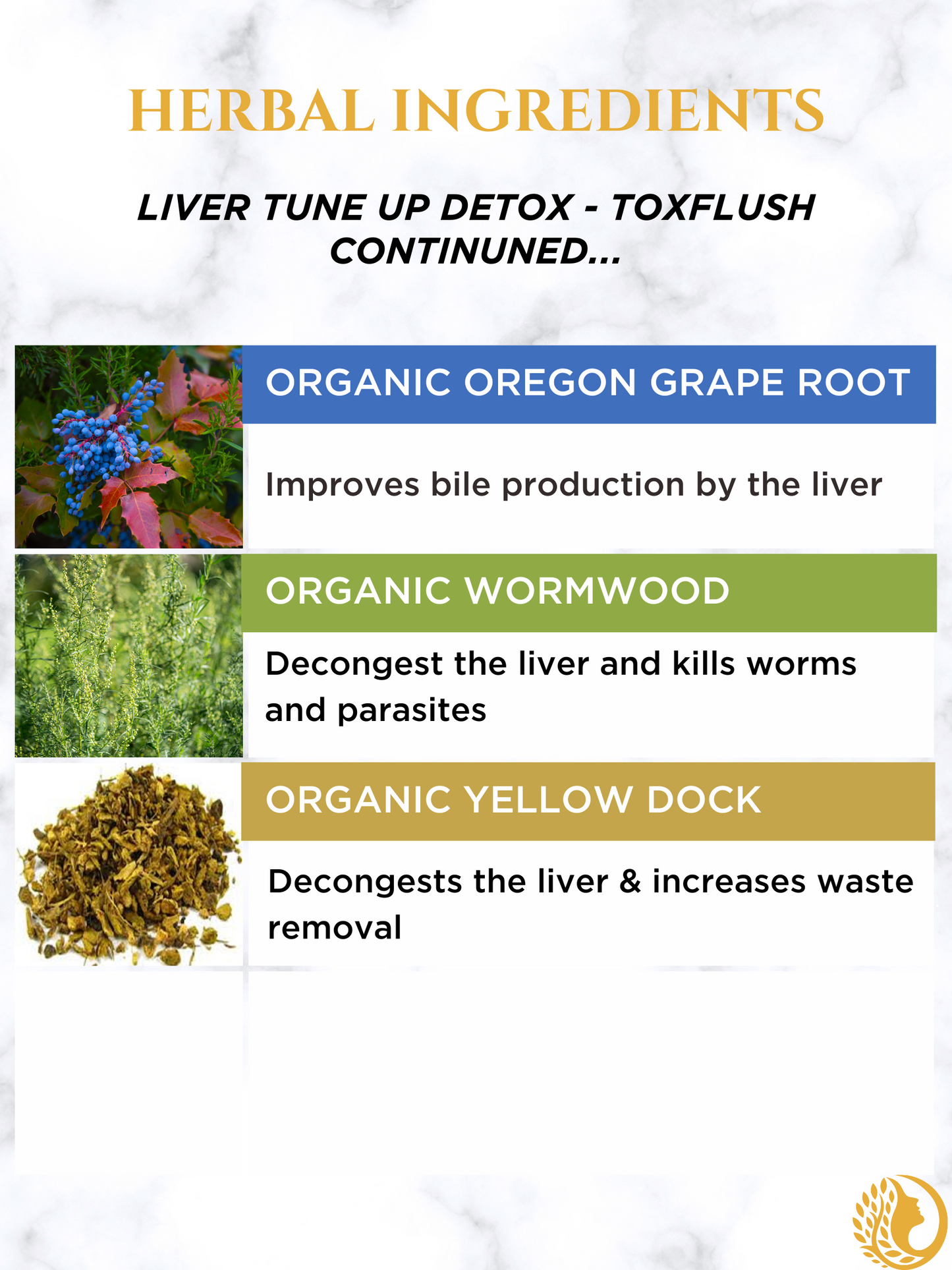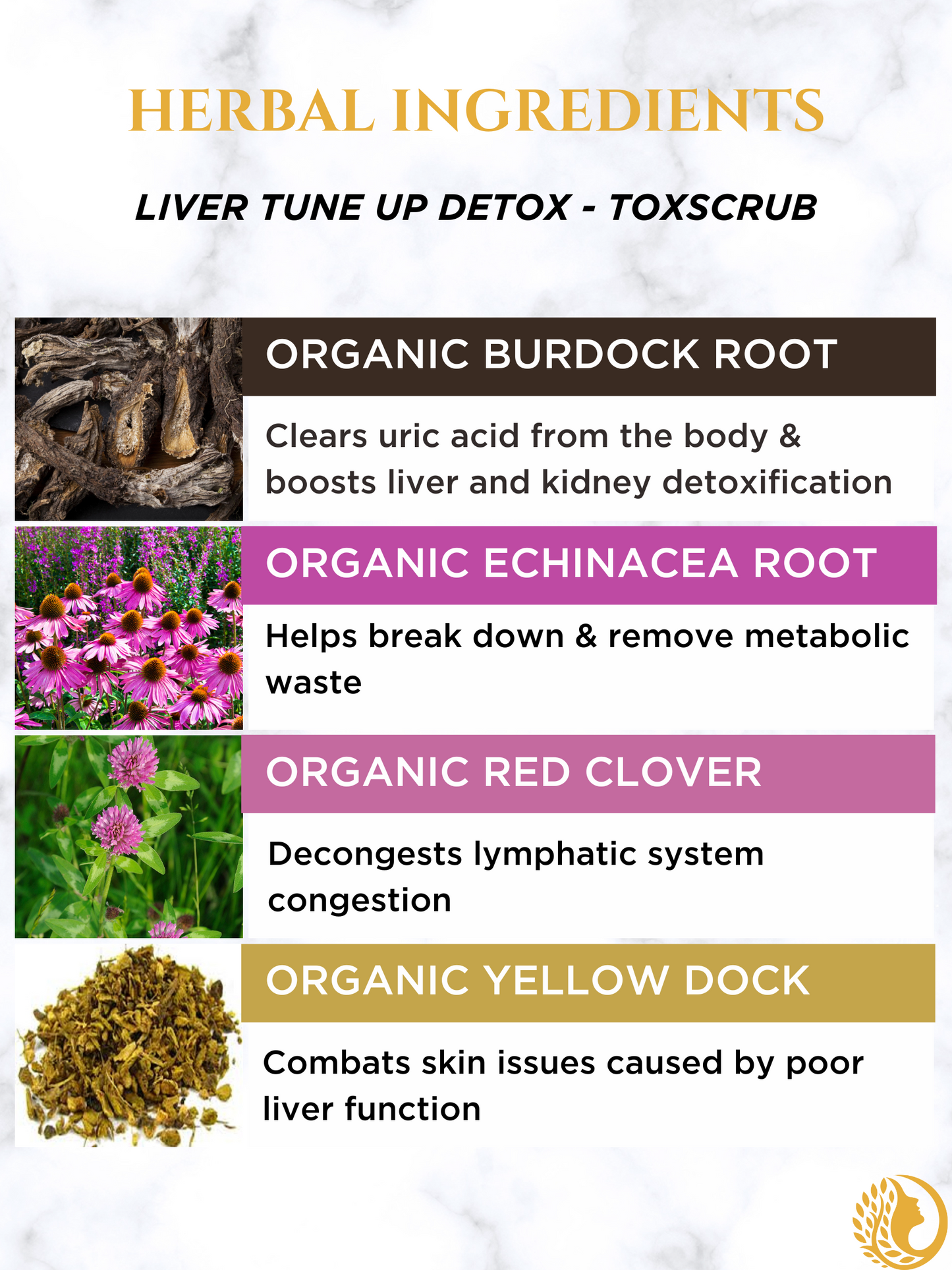Eczema Relief
How to Control Eczema Naturally
---
Covered In This Guide
1. Support Liver Health with Cleansing Herbs
2. Manage Stress with Herbal Support
3. Avoid Inflammatory Foods
4. Incorporate Skin-Supporting Detox Foods
5. Choose High-Quality Multivitamins
6. Switch to Gentle, Eczema-Friendly Soaps
7. Use Natural, Long-Lasting Moisturizers
8. Soothe Itching and Inflammation Naturally
9. Repair and Rejuvenate Damaged Skin
10. Avoid Harsh Chemicals in Common Products
---
Did you know that eczema is actually an autoimmune condition?
It’s more than just a rash with triggers to dodge. Like all autoimmune conditions, eczema involves an overactive immune system that mistakenly attacks the body’s own tissues, leading to inflammation and damage. When you understand this, you can finally get to the root of the issue and find real, lasting relief.
This guide is here to help you take control with practical, effective tools.
A key part of this approach is reducing the toxic load your body takes on. By easing this burden, you allow your immune system to calm down, making it more effective in fighting autoimmune conditions.
That’s why taking a natural route—using fewer chemical products and pharmaceuticals—can make a world of difference.
By cutting out what spikes inflammation, lightening your liver’s load, and giving your body essential vitamins and minerals, you can move past temporary fixes.
Dive in and learn how to truly take charge of your eczema and overall health.
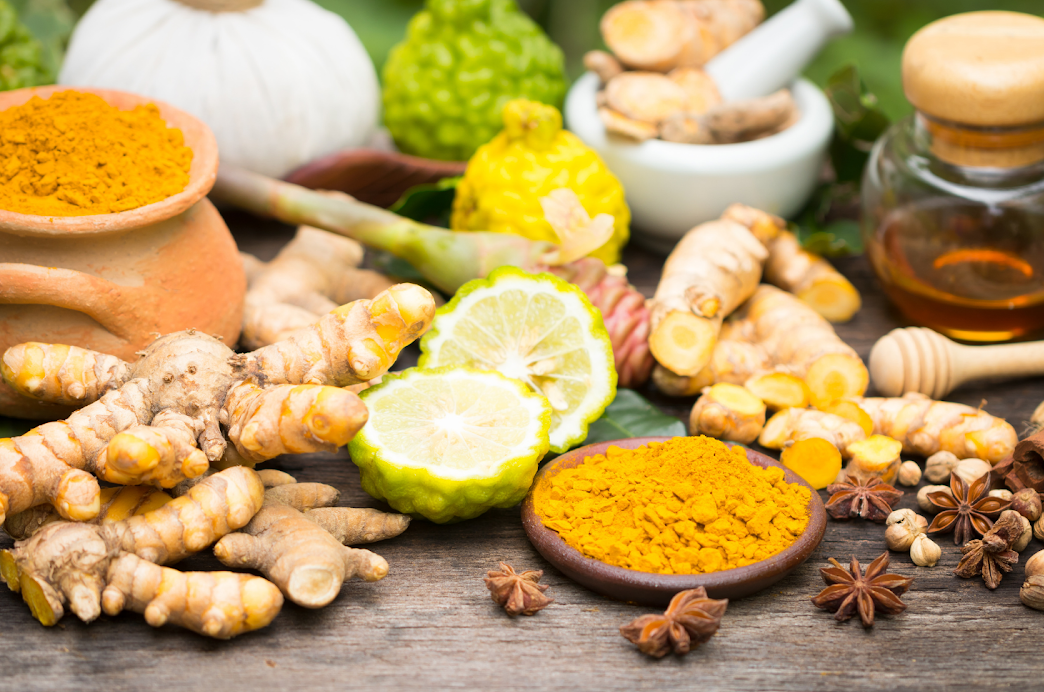
1
Support Liver Health with Cleansing Herbs
For lasting eczema relief, supporting your liver is crucial. Your liver works tirelessly to filter out toxins that fuel flare-ups, so strengthening and cleansing it is key to reducing inflammation and clearing waste. While this isn’t an overnight fix, it’s the foundation for true healing. The right herbs can make a powerful difference; below are the best ones to use alone or in blends. Your body will guide you to what it needs—it may take some trial and error, but Milk Thistle, Burdock Root, and Dandelion Root typically help most people. Supporting your liver isn’t just another step—it’s the game changer for real eczema relief. When you support your liver, you set the stage for clearer skin, renewed energy, and fewer flare-ups as your body finally gets the chance to heal from within.
-
Artichoke Leaf
What It Does: Artichoke leaf helps boost bile production, which aids in fat digestion and detoxification. If your eczema worsens after eating fatty or heavy meals, artichoke leaf can help by improving digestion and preventing toxin buildup.
Choose This If: Your eczema is triggered after eating rich, fatty foods or if you experience bloating and digestive discomfort.
Ways to Consume: Capsules (500-1,000 mg per day) are effective for consistent intake. Tinctures (20-40 drops, up to 3 times daily) can be taken before meals for immediate digestive support.
-
Milk Thistle
What It Does: Milk thistle contains silymarin, a powerful antioxidant that protects and regenerates liver cells. This herb is best for those whose eczema may be triggered by a buildup of toxins from diet or environmental exposure (e.g., alcohol, processed foods, pollution). Over time, using milk thistle can help cleanse the liver, resulting in clearer skin and fewer flare-ups.
Choose This If: You notice your eczema flares after consuming processed foods, alcohol, or after exposure to air pollution.
Ways to Consume: Capsules (150-300 mg, 1-3 times daily) offer consistent support, making them easy to incorporate into your routine. Tinctures (20-40 drops, 2-3 times daily) can be added to water or juice for quick absorption.
-
Burdock Root
What It Does: Burdock root is a powerful blood purifier and lymphatic cleanser, perfect for persistent or inflamed eczema that doesn’t respond well to basic treatments. By flushing out toxins and improving circulation, it supports clearer skin and overall health.
Choose This If: Your eczema is chronic, red, and inflamed, and you suspect it’s related to internal toxin buildup or sluggish circulation.
Ways to Consume: Tinctures (20-40 drops, up to 3 times daily) provide effective absorption. Capsules (500-1,000 mg daily) are great for daily maintenance.
-
Cleavers
What It Does: Cleavers is specifically known for its ability to support the lymphatic system. The lymphatic system helps move waste out of the body, so if you have eczema with puffiness or swelling, cleavers can help reduce this by promoting lymph drainage.
Choose This If: Your eczema patches are accompanied by swelling or puffiness, indicating poor lymphatic circulation.
Ways to Consume: Tinctures (20-40 drops, up to 3 times daily) are highly effective and can be added to water. Cleavers tea can be consumed in the morning to jumpstart your lymphatic system for the day.
-
Dandelion Root
What It Does: Dandelion root acts as a gentle daily detox and digestive support. It stimulates bile production, which helps your body break down food and eliminate waste efficiently. If you experience bloating or poor digestion along with eczema, this herb can help reduce flare-ups by keeping your system moving and clear.
Choose This If: Your eczema worsens when you have digestive issues, such as bloating or constipation.
Ways to Consume: Tinctures (20-30 drops, up to 3 times daily) offer fast action, especially when added to water before meals. Capsules (500-1,000 mg per day) are convenient and can be taken with meals.
-
Oregon Grape Root
What It Does: Oregon grape root helps clear up skin issues like eczema by supporting the liver’s detox process. Its natural antibacterial and anti-inflammatory properties reduce redness, irritation, and improve overall skin health.
Choose This If: Your eczema flares up when you feel bloated, experience digestive discomfort, or have persistent redness and irritation. This herb is ideal if you want to support natural detoxification and skin clarity.
Ways to Consume: Capsules (400-800 mg per day) for consistent use. Tinctures (20-40 drops, 2-3 times daily) for faster absorption.
-
Red Clover
What It Does: Red clover is known for its blood and lymph-cleansing properties, which help remove waste and reduce inflammation. It’s an excellent all-around choice if your eczema is inflamed and widespread or if you want a comprehensive detox solution.
Choose This If: Your eczema covers larger areas, is inflamed, or you want full-body detoxification.
Ways to Consume: Tinctures (20-40 drops, up to 3 times daily) are fast and effective. Capsules can be taken according to the product instructions for steady support.
-
Turmeric
What It Does: Turmeric is rich in curcumin, which has anti-inflammatory properties and supports liver function. It’s a good choice if your eczema is linked to inflammation, such as during stressful or physically active periods when joint pain or redness is present.
Choose This If: Your eczema flares are inflamed, hot, or coincide with joint pain or other signs of inflammation.
Ways to Consume: Capsules (500-1,000 mg, 1-2 times daily with black pepper) are the most effective for systemic absorption. Tinctures (20-40 drops, up to 3 times daily) can be added to water for a quick, anti-inflammatory boost.
-
Yellow Dock
What It Does: Yellow dock is a strong blood purifier that also supports liver and lymphatic health. It’s ideal if your eczema is slow to heal or looks dull, indicating a need for better toxin elimination.
Choose This If: Your eczema appears sluggish, slow to heal, or you suspect it’s due to poor blood and lymphatic flow.
Ways to Consume: Tinctures (20-40 drops, up to 3 times daily) offer potent detox support. Capsules (500-1,000 mg daily) make daily use convenient.

Liver Tune Up 3 Week Detox
If you’re ready to add powerful herbs but don’t know where to start, try the Liver Tune Up Detox. This tincture absorbs quickly into the body for faster results than teas or capsules and is easy to take on the go. It activates your body’s natural detox system, boosting bile production to flush out waste and cleanse your liver, lymphatic system, and colon. Within weeks, you’ll notice calmer skin, more energy, fewer headaches, and better digestion—all signs of improved liver function. If you’re constantly tired, dealing with headaches, or experiencing skin issues, it could mean your body is overloaded with toxins. This isn’t just about masking symptoms; it’s about addressing the root cause so you feel truly refreshed and balanced.
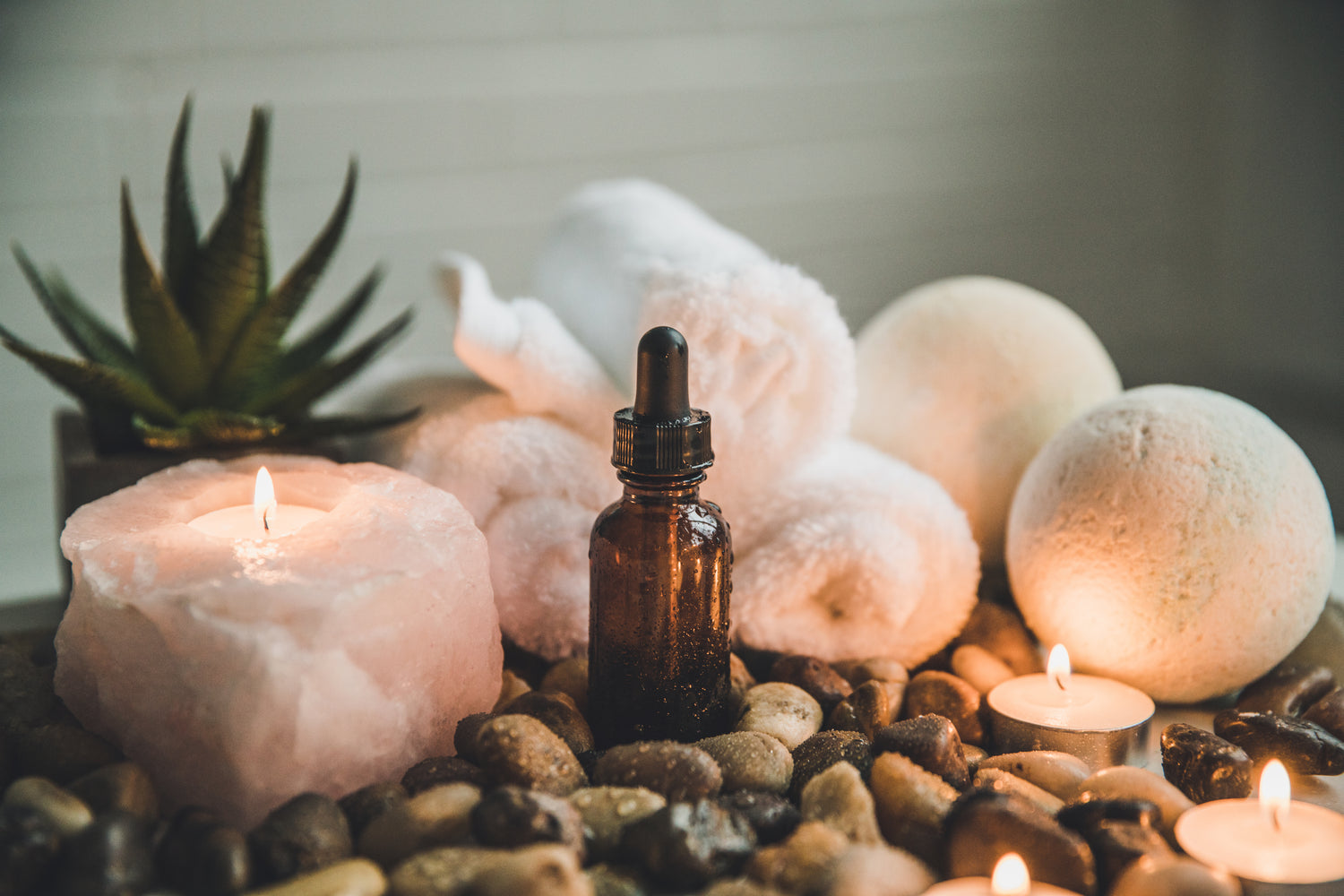
2
Manage Stress with Herbal Support
Managing stress is key if you’re serious about getting your eczema under control. Most people think they have to power through stress on their own, but that’s not the case. The right herbs can make a huge difference. They don’t just support you mentally; they physically calm your body’s stress response, making it easier for your skin and overall health to recover. It’s not instant, but it sets the stage for real healing and prevents those stress-related flare-ups. Plus, it helps you handle life’s ups and downs more smoothly. Reishi, Schisandra, and Licorice Root are great options to try alone or in a blend. Managing stress isn’t just another step—it’s the game changer for clearer skin and lasting relief. These herbs are simple to add to your routine and can make a noticeable difference. If stress is a factor in your eczema flare-ups, strongly consider these herbs for their benefits.
-
Licorice Root
What It Does: Licorice root is an adaptogen that helps regulate stress hormones and supports energy levels. It’s particularly helpful if you often feel fatigued or have low energy during stressful times. By keeping stress in check and promoting a more balanced energy flow, licorice root can help prevent stress-induced eczema flare-ups and reduce inflammation.
Choose This If: Your eczema flares when you’re feeling constantly tired, stressed, or run down. If you need extra support to feel more energized and resilient during stressful periods, licorice root could be a good option for you.
Ways to Consume: Tinctures (20-40 drops, up to 2 times daily) provide quick absorption and can be mixed with water or juice. Capsules (250-500 mg per day) are a convenient option for daily intake. Note: Avoid using licorice root long-term without breaks, as it can cause side effects if used continuously over extended periods.
-
Reishi Mushroom
What It Does: Reishi mushroom is known for its calming and stress-reducing properties. It helps your body manage stress more effectively and supports your immune system. Reishi is especially beneficial if you struggle with poor sleep, as it promotes better sleep quality. Good sleep can significantly impact your ability to manage stress and, in turn, reduce the likelihood of stress-related eczema flare-ups.
Choose This If: Your eczema flares up when you’re not sleeping well or when stress disrupts your sleep pattern. If you’re looking for an herb that can help you feel calmer and improve your sleep, Reishi is an excellent choice.
Ways to Consume: Capsules (500-1,000 mg per day) are ideal for daily use. Tinctures (20-40 drops, up to 2 times daily) are another effective option and can be mixed with water or added to smoothies. Reishi powder can be stirred into hot drinks or smoothies for a calming, nightly ritual.
-
Schisandra Berry
What It Does: Schisandra berry is an adaptogen that helps your body adapt to stress and supports both mental focus and liver health. This herb is a great all-rounder for reducing stress, enhancing mental performance, and promoting clear skin by supporting the body’s detoxification processes. Its ability to balance stress and support liver function can be beneficial if your eczema flares when your body is under pressure from stress and toxin buildup.
Choose This If: Your eczema flares up during busy, stressful times or when you feel mentally and physically overwhelmed. Schisandra is a good choice if you’re looking for an herb that can support stress relief while promoting overall body and skin health.
Ways to Consume: Capsules (500-1,000 mg per day) are effective for consistent support. Tinctures (20-40 drops, up to 3 times daily) can be taken with water or juice for quick absorption. Schisandra can also be consumed as a tea, but capsules or tinctures tend to be more potent.

3
Avoid Inflammatory Foods
Avoiding inflammatory foods is crucial for managing eczema. Foods like sugar, dairy, processed items, and refined carbs can spike inflammation, worsening redness, itching, and flare-ups. Alcohol and fried foods dehydrate and weaken the skin barrier, while gluten, artificial sweeteners, and certain vegetable oils can trigger further irritation. Cutting out these triggers and focusing on whole, nutrient-rich foods supports your body’s natural ability to reduce inflammation and strengthen your skin. Swapping problem foods for options like whole grains, plant-based dairy, and natural sweeteners can lead to noticeable improvements over time, reducing flare-ups and promoting healthier skin.
-
Alcohol
How It Affects Eczema: Alcohol dehydrates the body and skin, disrupting the skin barrier and increasing inflammation, which can trigger eczema flare-ups.
Common Sources: Beer, wine, spirits, and alcohol-based mixers.
Tips: Drink in moderation, and prioritize water or herbal teas to stay hydrated. Choose alcohol-free alternatives when possible.
-
Artificial Sweeteners
How It Affects Eczema: Artificial sweeteners can disrupt gut bacteria, triggering inflammation and potentially worsening eczema.
Common Sources: Diet sodas, sugar-free snacks, flavored waters, and gum.
Tips: Choose natural sweeteners in moderation, like stevia, honey or maple syrup, and avoid “sugar-free” labeled products with artificial ingredients.
-
Dairy Products
How It Affects Eczema: Dairy proteins, such as casein and lactose, can trigger inflammation, especially in sensitive individuals, leading to increased skin irritation and worsened symptoms.
Common Sources: Milk, cheese, yogurt, butter, baked goods, cream-based sauces, protein powders, and flavored chips.
Tips: Try dairy-free alternatives like almond or oat milk, and if you consume dairy, opt for organic, grass-fed sources in small amounts.
-
Fried and Trans Fats
How It Affects Eczema: Fried foods and trans fats can release inflammatory compounds that dry out skin and exacerbate eczema symptoms.
Common Sources: French fries, fried chicken, doughnuts, margarine, vegetable shortening, packaged pastries, and some crackers.
Tips: Avoid fried foods and trans fats; cook with healthier oils like olive or avocado oil.
-
Gluten
How It Affects Eczema: Gluten can trigger digestive inflammation, particularly in those sensitive to it, which can worsen skin inflammation linked to eczema.
Common Sources: Bread, pasta, cereals, baked goods, soy sauce, processed meats, sauces, and malt (found in some candies and cereals).
Tips: Consider gluten-free grains like quinoa, rice, or oats, and consult a doctor before eliminating gluten entirely.
-
Margarine
How It Affects Eczema: Margarine contains trans fats and other unhealthy fats that promote inflammation, which can worsen dry, itchy skin.
Common Sources: Margarine spreads, some baked goods, fried foods, and processed foods.
Tips: Use healthier fats like olive oil, avocado oil, or real butter (in moderation) as alternatives.
-
Processed Foods and Fast Food
How It Affects Eczema: Processed foods often contain additives, preservatives, and unhealthy fats that promote inflammation and disrupt gut health, which can aggravate eczema.
Common Sources: Fast foods, packaged snacks, frozen meals, instant noodles, canned soups, and deli meats.
Tips: Focus on whole foods like fresh fruits, vegetables, and nuts instead of processed items.
-
Red Meat (especially processed types)
How It Affects Eczema: Red meat, particularly processed types, contains saturated fats that increase inflammation, which can exacerbate eczema.
Common Sources: Beef, lamb, pork, bacon, sausage, deli meats, and hot dogs.
Tips: Limit red meat intake and opt for lean proteins like fish or plant-based alternatives.
-
Refined Carbs
How It Affects Eczema: Refined carbs spike blood sugar quickly, leading to an inflammatory response that can aggravate eczema.
Common Sources: White bread, pastries, white rice, pasta, and processed snacks.
Tips: Choose whole grains like brown rice, quinoa, and oats, which release sugars more slowly and reduce inflammation.
-
Soy Products
How It Affects Eczema: Soy is a common allergen that can trigger inflammation, especially in sensitive individuals, potentially worsening eczema flare-ups.
Common Sources: Tofu, soy milk, soy sauce, canned soups, protein bars, and vegetarian meat substitutes.
Tips: If sensitive to soy, look for alternatives like almond or coconut-based products.
-
Sugar
How It Affects Eczema: Sugar spikes blood sugar, leading to an inflammatory response that can worsen redness, itching, and flare-ups. High sugar intake can also weaken immunity, making it harder for skin to heal.
Common Sources: Sodas, candy, desserts, salad dressings, sauces (like ketchup or BBQ), flavored yogurts, and cereals.
Tips: Limit refined sugars and opt for natural sweeteners like honey or fruit in moderation.
-
Vegetable Oils
How It Affects Eczema: Vegetable oils high in omega-6 fatty acids (like soybean and corn oil) can increase inflammation, especially if not balanced with omega-3s.
Common Sources: Soybean oil, corn oil, canola oil, and many processed foods.
Tips: Use oils high in omega-3s or monounsaturated fats, like olive oil or flaxseed oil, for cooking and salad dressings.

4
Incorporate Skin-Supporting Detox Foods
Incorporating skin-supporting detox foods into your diet is crucial for managing eczema naturally. These foods help reduce inflammation, support liver function, and promote a healthy gut—all of which play a significant role in minimizing flare-ups. By choosing nutrient-rich foods that aid in detoxification, you help your body eliminate toxins more effectively, leading to clearer skin and a stronger immune response. Foods packed with antioxidants, vitamins, and anti-inflammatory properties work together to strengthen the skin barrier, repair damaged tissue, and support overall skin health. While it’s not an overnight fix, making small changes in your diet can lead to big improvements over time, helping you manage symptoms and improve skin resilience from the inside out.
-
Beef Bone Broth
How It Affects Eczema: Rich in collagen, gelatin, and amino acids that support skin repair and hydration.
Common Sources: Homemade or store-bought bone broth.
Tips: Drink warm broth or use it as a base for soups and stews to incorporate into your diet regularly.
-
Beets
How It Affects Eczema: Contains betaine and pectin, which support liver function and help eliminate toxins, potentially improving blood quality and reducing eczema flare-ups.
Common Sources: Fresh beets, beet juice, roasted beetroot.
Tips: Add roasted or juiced beets to salads or smoothies for a sweet, detoxifying boost.
-
Cruciferous Vegetables
How It Affects Detoxification: Rich in sulfur compounds that activate liver detoxification enzymes and help break down toxins.
Common Sources: Broccoli, cauliflower, Brussels sprouts, cabbage.
Tips: Steam or lightly sauté to preserve nutrients. Incorporate into meals a few times per week for optimal liver support.
-
Fatty Fish
How It Affects Eczema: High in omega-3 fatty acids that help reduce inflammation and soothe the skin.
Common Sources: Salmon, mackerel, sardines, herring.
Tips: Aim for at least two servings per week or consider a high-quality fish oil supplement if fresh fish is not regularly consumed.
-
Green Tea
How It Affects Eczema: Rich in antioxidants, particularly catechins, that help detoxify the liver and support the removal of toxins from the blood.
Common Sources: Brewed green tea, matcha.
Tips: Drink 1-2 cups daily to maintain consistent detoxification support. Choose unsweetened varieties for optimal health benefits.
-
Leafy Greens
How It Affects Eczema: Chlorophyll-rich leafy greens help cleanse the bloodstream and support liver detoxification, which may reduce inflammation associated with eczema.
Common Sources: Spinach, kale, Swiss chard, collard greens.
Tips: Incorporate leafy greens into daily meals as salads, smoothies, or cooked dishes to maintain consistent detoxification support.
-
Oatmeal
How It Affects Eczema: Contains beta-glucans and antioxidants that have anti-inflammatory properties and support skin barrier function.
Common Sources: Oatmeal, oat-based snacks, colloidal oatmeal baths.
Tips: Incorporate oats into breakfast or use oat-based products for added benefits. For best benefits, use rolled or steel cut oats.
-
Probiotic Rich Foods
How It Affects Eczema: Balances gut bacteria, improving immune function and reducing overall inflammation that can trigger eczema.
Common Sources: Yogurt (unsweetened), kefir, sauerkraut, kimchi.
Tips: Choose unsweetened, low-sugar options for maximum benefits. Incorporate into meals or as a snack.
-
Sweet Potatoes
How It Affects Eczema: Contains beta-carotene, which the body converts to vitamin A, essential for skin health and repair.
Common Sources: Sweet potatoes, yams.
Tips: Bake, mash, or include in soups and stews for a nutritious side dish.
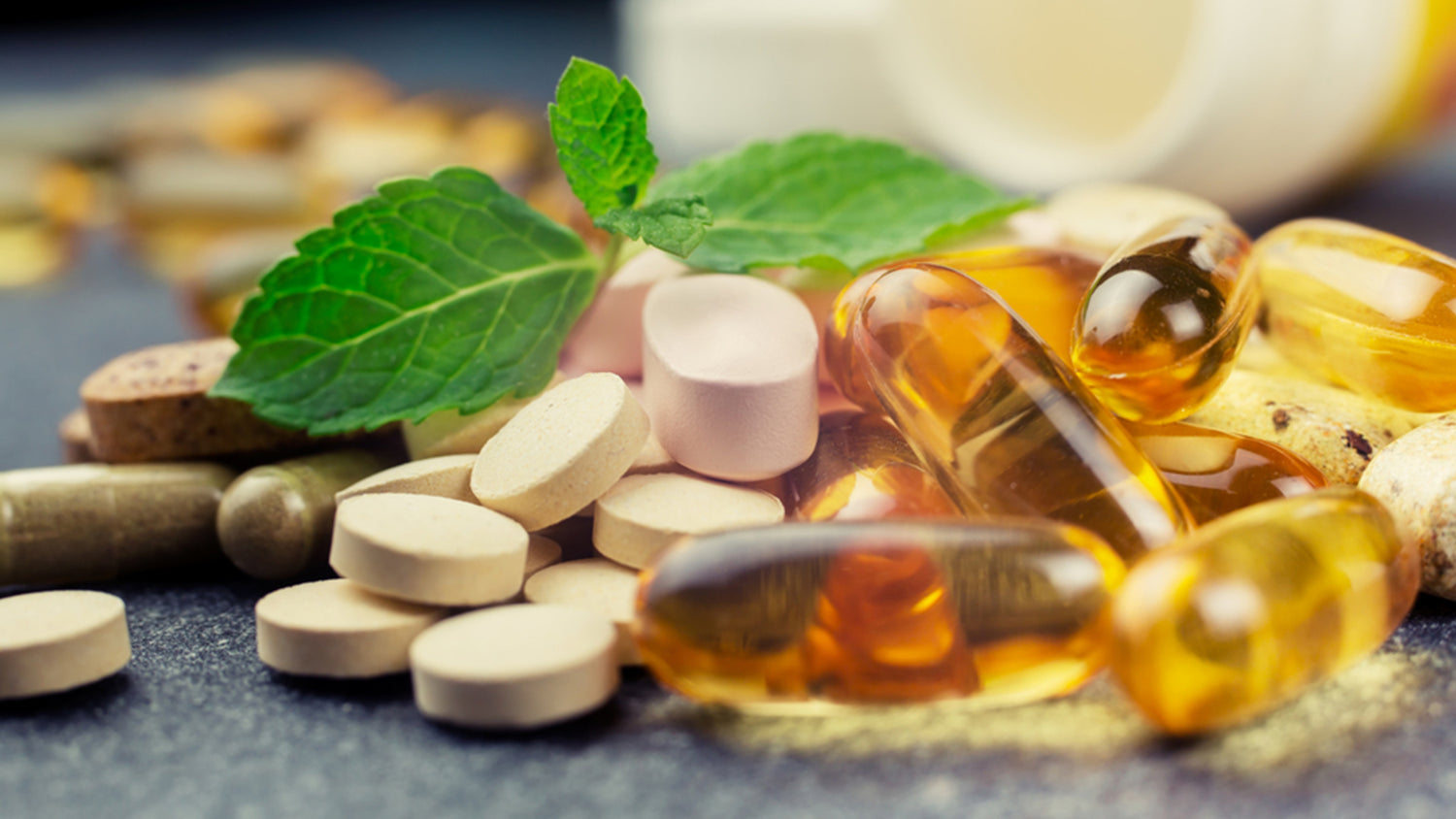
5
Choose High-Quality Multivitamins
Choosing a high-quality multivitamin can make a big difference in managing eczema. Vitamins and nutrients play a crucial role in keeping your skin healthy, reducing inflammation, and supporting your immune system. Go for a multivitamin that’s third-party tested and in liquid or softgel form for better absorption. Look for bioavailable ingredients and steer clear of ones with artificial additives, gluten, or fillers. While mid-range to premium options might cost more, they’re usually more effective than the cheap brands when it comes to supporting your skin. Supplements aren’t a magic fix, but they give your body the nutrients it needs to help your skin heal and stay resilient. Investing in a quality multivitamin is a simple step that can support clearer, healthier skin.
-
Fish Oil
Properties: Rich in omega-3 fatty acids (EPA and DHA) with strong anti-inflammatory effects.
Benefits: Reduces inflammation, improves skin barrier function, and moisturizes from within, making skin less prone to dryness and irritation.
Tips: Choose a high-quality, third-party tested fish oil with high EPA and DHA content. Take as directed and consult with a healthcare provider before starting supplementation.
-
Kelp
Properties: A natural source of iodine, vitamins, and minerals, including antioxidants that support skin health.
Benefits: Helps maintain proper thyroid function, which is linked to skin health. Its antioxidant properties help reduce inflammation and improve skin hydration.
Tips: Use kelp in moderation, as excessive iodine can disrupt thyroid function. Choose organic kelp supplements and consult a doctor if you have thyroid concerns.
-
Vitamin B Complex
Properties: Includes essential B vitamins like B3 (niacin), B6, and B12 that support skin health and reduce inflammation.
Benefits: Improves skin barrier function, reduces inflammation and itchiness, and supports cell regeneration and moisture retention.
Tips: Choose a B-complex supplement that includes bioavailable forms like methylcobalamin (B12). Take with food to improve absorption and reduce stomach upset.
-
Vitamin C with bioflavonoids
Properties: A powerful antioxidant that promotes collagen production and protects against free radical damage.
Benefits: Supports skin healing, reduces inflammation, and strengthens the skin barrier, improving resilience to irritants.
Tips: Look for a vitamin C supplement with ascorbic acid or buffered forms if sensitive. Pair with other antioxidants, like vitamin E, for enhanced effects.
-
Vitamin E
Properties: A potent antioxidant that helps protect the skin from oxidative stress and supports skin repair.
Benefits: Moisturizes dry skin, reduces inflammation, and enhances healing of eczema patches.
Tips: Choose natural vitamin E (d-alpha-tocopherol) for better absorption. Apply topically in creams for direct skin benefits or take orally as recommended.
-
Zinc
Properties: An essential mineral with anti-inflammatory and antioxidant properties that supports immune function and skin healing.
Benefits: Aids in skin repair, reduces inflammation, and helps prevent infections in broken skin from eczema.
Tips: Opt for zinc supplements like zinc picolinate or zinc citrate for better absorption. Take with food to prevent stomach upset and avoid overdosing, as excess zinc can interfere with copper absorption.
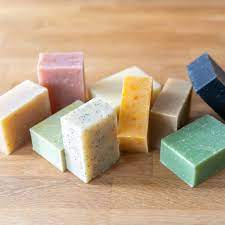
6
Switch to Gentle, Eczema-Friendly Soaps
Switching to gentle, eczema-friendly soaps is essential for keeping your skin healthy and flare-up free. Regular soaps often contain harsh chemicals and artificial fragrances that irritate sensitive skin and worsen eczema. By choosing natural, gentle cleansers that are free from these irritants, you give your skin the chance to heal, stay hydrated, and feel more comfortable. This simple change can make a big difference in reducing irritation and protecting your skin’s natural barrier. Don’t underestimate the power of using the right cleanser—it's an easy step that can help you feel more in control of your skin’s health and see lasting improvements.
-
Aloe Vera Soap
Use For: Deep hydration and gentle cleansing.
Best For: Very dry or flaky skin.
Why It’s Good: Infused with shea butter, which provides deep moisture and skin nourishment while cleansing.
How to Use: Use daily on areas prone to dryness. Best used in colder months when skin tends to dry out more.
-
Castile Soap
Use For: Gentle daily cleansing and moisturizing.
Best For: Sensitive skin and all-over body use.
Why It’s Good: Made from plant-based oils like olive oil and coconut oil, which cleanse without stripping natural moisture.
How to Use: Use daily on the body and face. Look for “unscented” versions to avoid potential irritation.
-
Colloidal Oatmeal Soap
Use For: Soothing irritated, itchy skin.
Best For: Inflamed or itchy areas needing gentle relief.
Why It’s Good: Contains colloidal oatmeal, which is known for its anti-inflammatory and soothing properties. Helps calm redness and irritation.
How to Use: Lather and wash affected areas. Ideal for use during flare-ups to provide soothing relief.
-
Dead Sea Mud Soap
Use For: Reducing inflammation and calming irritated skin.
Best For: Eczema-prone skin with flare-ups or redness.
Why It’s Good: Contains minerals from Dead Sea mud that help soothe inflammation and cleanse without irritation.
How to Use: Use during flare-ups or when redness is present. Gently lather and wash affected areas.
-
Glycerin Soap
Use For: Moisturizing and cleansing without stripping the skin.
Best For: All skin types, especially dry or sensitive skin.
Why It’s Good: Glycerin attracts moisture and helps retain it, preventing skin from drying out during washing.
How to Use: Use daily for a mild, non-irritating cleanse. Works well on both face and body.
-
Goat Milk Soap
Use For: Hydrating and nourishing dry, sensitive skin.
Best For: Eczema-prone skin needing extra moisture and softness.
Why It’s Good: Rich in natural fats, vitamins, and minerals that help maintain skin hydration and balance pH.
How to Use: Use as a daily cleanser to lock in moisture. Safe for both face and body.
-
Neem Oil Soap
Use For: Calming itchy, inflamed skin.
Best For: Severe itching and irritation.
Why It’s Good: Neem oil is rich in anti-inflammatory and antibacterial properties that help calm itching and protect the skin.
How to Use: Use as needed on areas prone to irritation. Best for spot treatment or targeted use.
-
Shea Butter Soap
Use For: Deep hydration and gentle cleansing.
Best For: Very dry or flaky skin.
Why It’s Good: Infused with shea butter, which provides deep moisture and skin nourishment while cleansing.
How to Use: Use daily on areas prone to dryness. Best used in colder months when skin tends to dry out more.
-
Commercial Body Wash
How It Can Affect Eczema: Harsh detergents can strip the skin of natural oils, leading to dryness and irritation. It is best to use natural options, but if you decide to use a commercial body, consider these tips.
Ingredients to Avoid: Fragrances, SLS/SLES (sodium lauryl/laureth sulfate), parabens (e.g., methylparaben), alcohol (e.g., ethanol).
Ingredients to Look For: Fragrance-free, sulfate-free formulas with gentle cleansers like coco-glucoside or decyl glucoside, added moisturizing agents like glycerin or colloidal oatmeal.

7
Use Natural, Long-Lasting Moisturizers
Switching to natural moisturizers is a smart move for managing eczema or dry skin. Many commercial products contain synthetic additives that can worsen irritation and trigger flare-ups. Natural options like jojoba oil, shea butter, and coconut oil are safer and more effective, packed with vitamins and fatty acids to deeply nourish and lock in moisture. Even if you’re new to using natural oils, their simple ingredients make them gentle and perfect for sensitive skin. By choosing natural moisturizers, you reduce irritation and support long-lasting comfort and resilience. It’s more than a change—it’s a step toward healthier, happier skin.
-
Argan Oil
Use For: Daily moisturizing with a non-greasy finish.
Best For: Face, neck, and chest.
Why It’s Good: High in vitamin E and antioxidants, lightweight, and easily absorbed. Helps improve skin elasticity and hydrates effectively.
How to Use: Apply a few drops to the face or targeted areas daily. Can be used under makeup for a smooth base.
-
Avocado Oil
Use For: Deep moisturizing for very dry or mature skin.
Best For: Thick skin areas like arms, legs, and back.
Why It’s Good: Rich in vitamins A, D, and E, and omega-3 fatty acids. Penetrates deeply to nourish and hydrate.
How to Use: Use as an overnight treatment or apply to very dry areas after a shower. Ideal for nighttime use for better absorption.
-
Coconut Oil (Unrefined/Extra Virgin)
Use For: Deep hydration and barrier protection.
Best For: Very dry areas like elbows, knees, and feet.
Why It’s Good: Contains lauric acid with antimicrobial properties, forms a protective barrier, and locks in moisture.
How to Use: Apply at night to rough patches for intensive moisture. Can be too heavy for the face or acne-prone skin.
-
Hemp Seed Oil
Use For: Daily, lightweight moisturizing that balances oil production.
Best For: Face and body; suitable for sensitive and combination skin.
Why It’s Good: Contains omega-3 and omega-6 fatty acids, non-comedogenic, and soothes irritation.
How to Use: Apply as a daily moisturizer or combine with other calming oils for added benefits. Absorbs quickly without a greasy residue.
-
Jojoba Oil
Use For: Daily, lightweight moisturizing for sensitive skin.
Best For: Face and body; suitable for all skin types.
Why It’s Good: Mimics skin’s natural sebum, balancing moisture levels without clogging pores. Rich in vitamins E and B-complex.
How to Use: Apply to damp skin right after showering for best absorption. Can be used as a daily face and body moisturizer.
-
Olive Oil (Extra Virgin)
Use For: Deep moisturizing for very dry, thick skin areas.
Best For: Elbows, knees, and feet.
Why It’s Good: Rich in antioxidants and vitamin E, deeply hydrates and protects the skin.
How to Use: Apply sparingly after a bath or shower to lock in moisture. Use on small areas, as it can be heavy for some skin types.
-
Rosehip Seed Oil
Use For: Daily face moisturizing and enhancing skin tone.
Best For: Face and areas prone to scarring or dryness.
Why It’s Good: Rich in vitamins A and C, helps with skin regeneration and reduces dryness without clogging pores.
How to Use: Apply a few drops at night for facial hydration and skin repair. Can be layered under a thicker cream for added moisture.
-
Shea Butter
Use For: Deep moisturizing and protecting very dry, cracked skin.
Best For: Hands, feet, and larger areas prone to dryness.
Why It’s Good: Packed with vitamins A and E and essential fatty acids. Deeply hydrates, softens skin, and improves elasticity.
How to Use: Use after showering or before bed for overnight absorption. Warm a small amount between your palms for smoother application.
-
Sweet Almond Oil
Use For: Daily moisturizing and soothing dry, itchy skin.
Best For: Large body areas like arms and legs.
Why It’s Good: Lightweight and rich in fatty acids, vitamins A and E. Nourishes and calms inflamed skin.
How to Use: Apply after a warm bath or shower to lock in moisture. Ideal for use on dry, itchy areas of the body.
-
Sunflower Oil
Use For: Lightweight daily moisturizing for sensitive skin.
Best For: Face and body; suitable for all skin types.
Why It’s Good: High in linoleic acid and vitamin E, strengthens the skin barrier and soothes irritation.
How to Use: Apply after a shower to damp skin to seal in moisture. Absorbs quickly without leaving a greasy feel.
-
Commercial Moisturizers
How It Can Affect Eczema: Moisturizers with synthetic additives can exacerbate dryness.
Ingredients to Avoid: Fragrances, mineral oil, lanolin, propylene glycol.
Ingredients to Look For: Fragrance-free, hypoallergenic moisturizers with ceramides, glycerin, shea butter, or squalane.
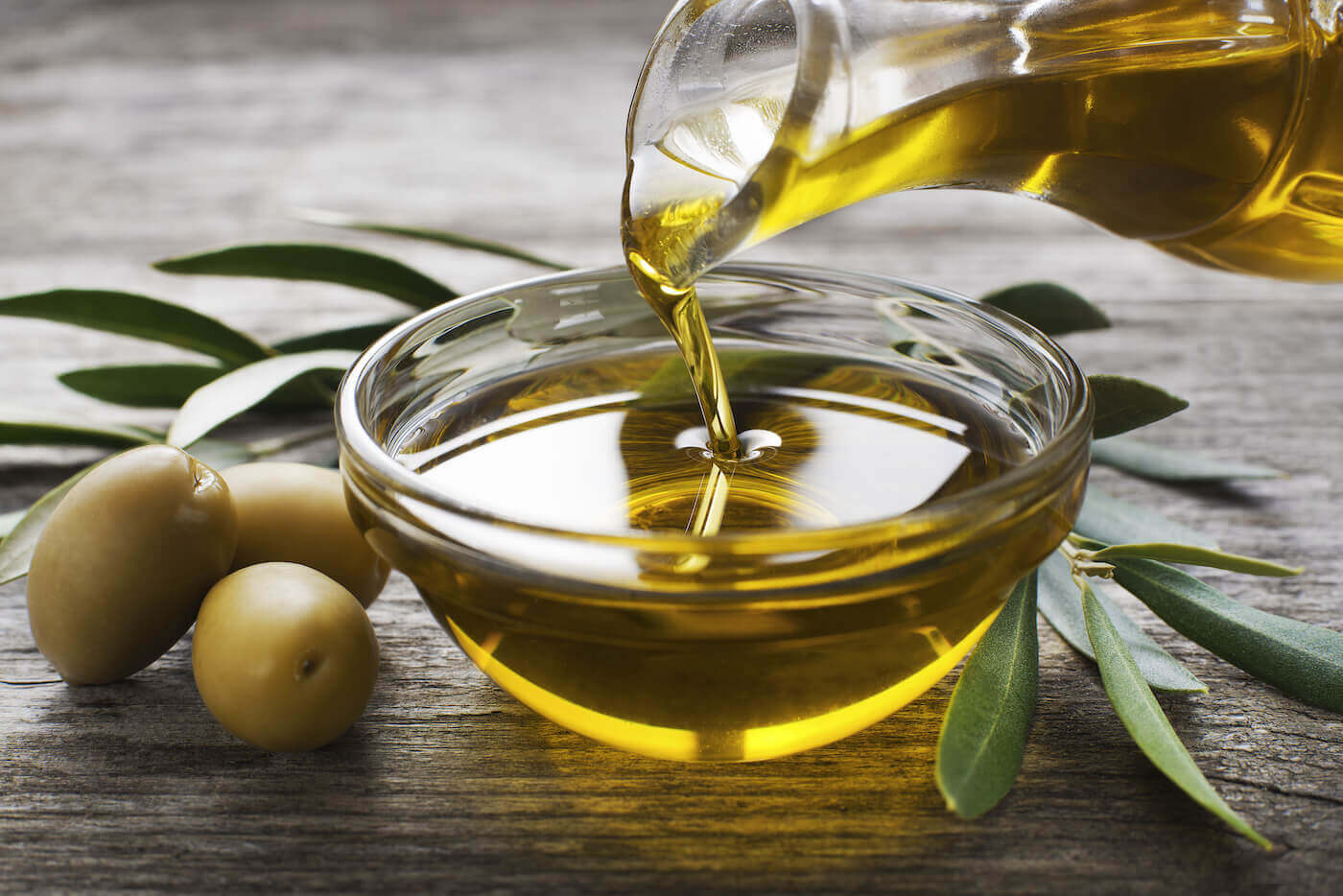
8
Soothe Itching and Inflammation Naturally
Soothe itching and inflammation naturally by choosing oils and butters over commercial creams. Many store-bought lotions contain harsh chemicals and fragrances that can irritate the skin and worsen eczema. Natural oils like calendula, chamomile, and neem offer powerful, chemical-free relief. Packed with anti-inflammatory compounds and vitamins, they calm redness, relieve itching, and support skin healing. While commercial products may seem convenient, they often come with hidden irritants. Switching to natural options gives your skin true, lasting comfort and promotes deep healing.
-
Aloe Vera Oil (Infused)
Use For: Immediate itch relief and calming red, irritated skin.
Best For: Daily use on face and body.
Why It’s Good: Contains vitamins A, C, and E with anti-inflammatory properties to cool and soothe the skin.
How to Use: Apply to itchy areas after cleansing. Can be used alone or combined with other oils for enhanced benefits.
-
Borage Seed Oil
Use For: Reducing inflammation and moisturizing itchy, dry skin.
Best For: Very dry, itchy areas on the body and face.
Why It’s Good: High in gamma-linolenic acid (GLA), which helps repair the skin barrier and calm inflammation.
How to Use: Apply directly to dry, itchy areas or mix with a lighter oil for larger areas. Suitable for daily use.
-
Calendula Oil
Use For: Reducing inflammation and soothing itchy, red areas.
Best For: Daily use on irritated skin and minor rashes.
Why It’s Good: Natural anti-inflammatory and antimicrobial properties help calm inflammation and promote healing.
How to Use: Apply to red or itchy patches as needed. Safe for use on both the face and body and can be mixed with other oils for larger applications.
-
Chamomile Oil (Infused)
Use For: Calming inflamed and itchy skin.
Best For: Face and body, particularly sensitive or irritated skin.
Why It’s Good: Contains compounds like azulene and bisabolol known for strong anti-inflammatory and calming effects.
How to Use: Apply to affected areas before bedtime for overnight relief. Can be used daily or as needed on itchy patches.
-
Evening Primrose Oil
Use For: Relieving itching and reducing redness.
Best For: Nighttime treatment on inflamed, itchy areas.
Why It’s Good: High in GLA and omega-6 fatty acids that support skin hydration and reduce itching.
How to Use: Apply as a nighttime treatment to soothe irritation and lock in moisture. Works well mixed with a moisturizer for full-body relief.
-
Hemp Seed Oil
Use For: Daily moisturizing and reducing mild inflammation.
Best For: Face and body; suitable for combination and sensitive skin.
Why It’s Good: High in omega-3 and omega-6 fatty acids, balances oil production, and soothes irritation.
How to Use: Use as a daily moisturizer on itchy or inflamed areas. Absorbs quickly and doesn’t leave a greasy residue.
-
Neem Oil
Use For: Severe itching relief and calming inflamed skin.
Best For: Nighttime treatment; best diluted due to its strong scent.
Why It’s Good: Rich in anti-inflammatory compounds like nimbin and quercetin, with antibacterial properties for protecting damaged skin.
How to Use: Mix with a carrier oil (e.g., jojoba or coconut oil) and apply to itchy areas at night.
-
Rosehip Seed Oil
Use For: Reducing inflammation and soothing irritation.
Best For: Face and areas prone to redness.
Why It’s Good: Rich in vitamins A and C and essential fatty acids that promote skin repair and reduce inflammation.
How to Use: Apply at night as part of your skincare routine for anti-inflammatory benefits and moisture retention.
-
Sunflower Oil
Use For: Calming inflammation and hydrating itchy skin.
Best For: Daily use on face and body.
Why It’s Good: Lightweight and high in linoleic acid, strengthens the skin barrier and soothes irritation.
How to Use: Apply after a shower to lock in moisture. Works well as a base oil for mixing with other soothing oils.
-
Tamanu Oil
Use For: Reducing inflammation, relieving itching, and supporting healing.
Best For: Nighttime, targeted treatment for red and inflamed areas.
Why It’s Good: Contains calophyllolide, known for its potent anti-inflammatory and healing properties.
How to Use: Apply sparingly on red or inflamed patches before bed. Avoid full-body use due to its thicker consistency.
-
Commercial Lotions / Creams
How It Can Affect Eczema: Some lotions can dry out or irritate the skin if they contain harsh additives.
Ingredients to Avoid: Fragrances, lanolin (may cause allergic reactions), propylene glycol, parabens.
Ingredients to Look For: Fragrance-free, hypoallergenic lotions with ceramides, shea butter, or colloidal oatmeal for soothing moisture.

9
Repair and Rejuvenate Damaged Skin
Choosing natural oils and butters for skin repair and rejuvenation is an effective way to support healing, reduce scarring, and strengthen the skin barrier. Many commercial products contain synthetic additives that can irritate sensitive skin and slow down healing. Natural options like rosehip seed oil, tamanu oil, and shea butter are packed with vitamins, antioxidants, and fatty acids that promote skin regeneration and improve elasticity. These oils not only help fade scars and repair damaged skin but do so without the harsh chemicals found in many commercial lotions. Whether you need a lightweight oil for daily use or a rich, intensive treatment for deeper scars, natural solutions offer safe, nourishing care. Making the switch to natural products ensures your skin gets what it needs to heal effectively and stay resilient.
-
Argan Oil
Use For: Light scar healing and daily moisturizing.
Best For: Facial application and minor scars.
Why It’s Good: High in vitamin E and essential fatty acids, improving skin texture and elasticity.
How to Use: Apply a few drops daily to the face or other small scarred areas. Can be layered under makeup or used as a lightweight moisturizer.
-
Calendula Oil (Infused)
Use For: Minor scar healing and soothing inflamed, irritated skin.
Best For: Daily use on small scars and irritated areas.
Why It’s Good: Contains natural anti-inflammatory and antimicrobial properties that promote healing.
How to Use: Apply directly to healing skin or mix with a carrier oil for larger areas. Safe for face and body use.
-
Cocoa Butter
Use For: Preventing and softening scars, deep moisturizing.
Best For: Large areas like the legs, arms, and abdomen.
Why It’s Good: Forms a strong barrier to lock in moisture and improve skin elasticity.
How to Use: Apply generously after bathing for best results. Excellent for daily use on the body.
-
Rosehip Seed Oil
Use For: Reducing scars, promoting skin healing, and improving skin tone.
Best For: Facial scars, small body scars, and hyperpigmentation.
Why It’s Good: Lightweight and rich in vitamins A and C, which boost collagen and promote skin regeneration.
How to Use: Apply at night to clean skin on targeted scarred areas. Suitable for daily use on the face or smaller body areas.
-
Sea Buckthorn Oil
Use For: Reducing scars, promoting skin repair, and improving overall skin tone.
Best For: Targeted facial scar treatment and small body areas.
Why It’s Good: Rich in vitamins C and E and omega-7, supporting skin regeneration.
How to Use: Apply sparingly to avoid staining; best used at night. Mix with a lighter carrier oil for easier application.
-
Shea Butter
Use For: Preventing new scars, deep hydration, and soothing dry skin.
Best For: Large, dry areas like arms, legs, and hands.
Why It’s Good: Packed with vitamins A and E, providing long-lasting moisture and elasticity.
How to Use: Apply generously after a bath or shower to lock in moisture and prevent scar formation.
-
Tamanu Oil
Use For: Intensive treatment for deep, severe, or older scars.
Best For: Nighttime deep treatment on stubborn scar areas.
Why It’s Good: Thick and nutrient-dense with potent anti-inflammatory and skin-healing properties.
How to Use: Use sparingly on scars at night for deep penetration. Avoid full-body use due to its thickness.
-
Vitamin E Oil
Use For: Spot treatment for stubborn or older scars.
Best For: Targeted application on older, deep scars.
Why It’s Good: A powerful antioxidant that promotes skin repair and softens scar tissue.
How to Use: Apply directly to scars or mix with another carrier oil for less stickiness. Ideal for nighttime use for better absorption.

10
Avoid Harmful Chemicals in Common Products
Avoiding harmful chemicals in everyday products is essential for managing eczema and preventing flare-ups. Many common items contain harsh ingredients that can irritate sensitive skin and trigger reactions. Choosing options free from synthetic fragrances, dyes, and harsh chemicals helps reduce the risk of irritation and promotes healthier skin. Opting for hypoallergenic, fragrance-free, and natural alternatives provides gentle, effective care that supports your skin’s barrier. Simple changes, like swapping out products with irritating additives for those with safer ingredients, can make a big difference. These adjustments may seem minor, but they are powerful steps toward calmer, more comfortable skin and fewer flare-ups.
-
Dryer Sheets
How It Can Affect Eczema: Often have fabric-coating agents and fragrances that can irritate the skin.
Ingredients to Avoid: Fragrances, benzyl acetate, quats, artificial softening agents.
Ingredients to Look For: Wool dryer balls, fragrance-free and chemical-free dryer sheets.
-
Fabric Softener
How It Can Affect Eczema: Contains fragrances and chemicals that coat fabrics and trigger irritation.
Ingredients to Avoid: Synthetic fragrances, phthalates, quats (quaternary ammonium compounds).
Ingredients to Look For: Natural alternatives like white vinegar or fragrance-free, plant-based softeners.
-
Jewelry
How It Can Affect Eczema: Certain metals can cause contact dermatitis, leading to flare-ups.
Ingredients to Avoid: Nickel, cobalt.
Ingredients to Look For: Nickel-free or hypoallergenic metals like stainless steel, sterling silver, or high-karat gold.
-
Laundry Detergent
How It Can Affect Eczema: Detergents often leave residue on clothes that can irritate sensitive skin, causing flare-ups and itching.
Ingredients to Avoid: Fragrances, dyes, harsh surfactants like sodium lauryl sulfate (SLS), formaldehyde-releasing preservatives.
Ingredients to Look For: Hypoallergenic formulas, fragrance-free and dye-free, gentle surfactants like coco-glucoside.
-
Makeup
How It Can Affect Eczema: Can irritate and dry out the skin if it contains harsh chemicals or allergens.
Ingredients to Avoid: Fragrances, parabens, formaldehyde-releasing preservatives, synthetic dyes.
Ingredients to Look For: Hypoallergenic, non-comedogenic, fragrance-free makeup with soothing ingredients like vitamin E or mineral-based formulas.
-
Sunscreen
How It Can Affect Eczema: Chemical sunscreens can contain ingredients that irritate sensitive skin.
Ingredients to Avoid: Oxybenzone, avobenzone, synthetic fragrances.
Ingredients to Look For: Mineral-based sunscreens containing zinc oxide or titanium dioxide, fragrance-free, and labeled as suitable for sensitive skin.
perfectmindperfectbody
Liver Tune Up 3 Week Detox (Organic)
Share
